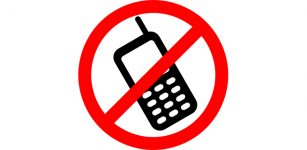Phone Use Now One of the Top Five Causes of Driving Fatalities

Mobile phone use has surpassed not wearing a seatbelt as one of the top five causes of driving fatalities, according to recent figures released by the NSW Centre for Road Safety.
Other main causes of driving fatalities include speeding, drink driving and fatigue. Mobile phone use includes talking, texting and using the internet while driving, and 20,800 infringements have reportedly been issued for these offences in NSW between July 2013 and January 2014.
Although it is difficult to gauge the extent of mobile phone use by drivers, and the role it may play in accidents unless a driver happens to be found with a phone in their hand at the time of a crash, police are able to use mobile cameras to catch drivers using their phone while behind the wheel.
The use of these devices has led to a large number of infringements being handed out.
What does the law currently say about mobile phone use while driving?
Current NSW legislation states that drivers are only allowed to make or receive phone calls if their phone is mounted on a cradle or is utilising Bluetooth technology, unless the vehicle is parked.
Drivers are not allowed to text, check emails or message online through their mobile phone while they are driving.
Learner drivers and those on a provisional licence are not allowed to use a mobile phone for any function while driving.
Other drivers are allowed to use the navigation or GPS and audio functions while driving, as long as their phone is mounted and is not being held against their ear or in their lap while it’s being used.
Even if their car is stationary in traffic or at lights, drivers are still not legally allowed to touch their phone or send messages.
The only time they can use their phone for any reason other than in the circumstances above is when the vehicle is parked.
If I’m caught using my mobile phone what could happen?
If police catch you using your mobile phone illegally while driving you will be issued with an infringement notice.
You will have to pay a fine of $304, and you will have three demerit points deducted from your licence.
If you are involved in an accident or are seen driving dangerously while using a mobile phone, it is possible that you could be charged with negligent driving.
Negligent driving is a traffic offence which comes with a maximum penalty of two years’ imprisonment if dealt with summarily.
If someone is seriously injured or dies as a result of your driving behaviour, you could find yourself facing more serious charges and potential disqualification from driving.
Negligent driving offences will generally be dealt with in court, so you will need to seek the advice of a traffic lawyer as soon as possible, especially if the charges are serious.
It can be difficult to prove that mobile phone use was the cause of negligent driving unless there are eyewitnesses, and the methods that police use to detect people using mobile phones while driving are not error-free.
With the continued widespread use of smartphones, it is likely that changes will be needed if drivers are going to be persuaded to stop using their phones while driving.
There are a number of widespread education campaigns aimed at increasing driver awareness of the dangers of mobile phone use while behind the wheel.
One of these is the multimedia “Get Your Hand Off It” campaign, which pokes fun at some of the excuses drivers who have been caught using their phones have given.
The campaign also emphasises the NSW Centre for Road Safety statistic that drivers who hold and use their phones are four times more likely to be involved in an accident.
As well as education campaigns, it has also been suggested that technology could be fitted to new cars that prevents mobile phones being used at all while driving.
Going to court for a traffic offence?
If you are going to court for a traffic offence, call or email Sydney Criminal Lawyers anytime to arrange a free first consultation with an experienced, specialist traffic lawyer who will accurately advise you of your options, the best way forward, and fight for the optimal outcome in your specific situation.






